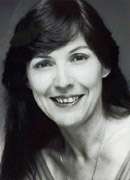Gay Kayler
Gay Kayler is an Australian country music entertainer and recording artist. Gay used her maiden name in her professional career until 1978, when she changed the spelling to Kayler to maintain a consistency of pronunciation.

Early life
Gay comes from a musical family. Her mother sang and played piano, piano accordion and violin with her siblings in their father's band on the Darling Downs, Queensland, in the 1930s.
In 1942, the Kahler family moved to Sydney where Gay continued this musical tradition when, at the age of two-and-a-half, she captivated commuters on Sydney's trams and buses as she sang for them.
In the early 1950s, Gay sang on one of the first reel-to-reel tape recorders in Australia – as part of its demonstration at the Sydney Royal Easter Show.
After attaining her certificate for 7th Grade Piano, Theory and Musical Perception, Gay and her family moved to Toowoomba, Queensland. It was there that Gay made her first professional performance in 1958.
Gay's reputation blossomed when she was chosen to sing the Alexandra Waltz for Princess Alexandra during her 1959 visit to Australia. The Fairy Princess wanted to hear more so, by royal command, the teenager sang a selection of songs. Ultimately, this led to Gay being contracted to Brisbane's Channel 7 for 3 years, where she appeared in shows such as the multi-Logie-Award-winning Theatre Royal with George Wallace Jnr.
Television and live performances
Now retired, Gay Kayler's 40-year professional showbusiness career included appearances on most national TV shows, e.g. Brian Henderson's Bandstand, Johnny O'Keefe's Sing, Sing, Sing and Graeme Bell's Trad Jazz. She performed eight times in the main Concert Hall of the Sydney Opera House, including on the first all-Australian Country Music Concert and the first all-Australian Variety Show held in that iconic venue. Gay also featured her Salvation Army Red Shield Appeal Song, Captain Joe Henry's Happy Hand-Clapping, Open Air Rhythm Band, backed by a 300-voice choir and huge Salvation Army band, when she opened and closed a 1976 concert in that venue.
Other notable venues included Melbourne's Sidney Myer Music Bowl, Adelaide's Chrysler Auditorium and the 1,500 strong NSW Registered Club Circuit, said to be the biggest entertainment circuit in the world in its day.
Modelling, commercials and movie sound track
Gay Kayler, a triple beauty quest title holder, was a singer and model who also made commercials, e.g., with Bert Newton on Australia's Great Barrier Reef and the female voices on the radio commercial, David Callan at Your Club, which was aired over 31,000 times. She recorded the female sound track on the 1978 Little Boy Lost movie, which was released worldwide. The Little Boy Lost DVD was re-released in 2007.
Recordings
Gay's recording career began in 1973 when she recorded the EMI album, Faces of Love, with Johnny Ashcroft. She had a double charting single in 1975 of Nobody's Child coupled with the first Australian female trucking song, My Home-Coming Trucker's Coming Home, composed by Johnny Ashcroft. Her last recording in 1995 was Child of Koonapippi, a song of the Aboriginal Stolen Generations, written by Eric Watson (re-released 2001). Gay is best known for her version of The White Magnolia Tree, which was in EMI and Readers Digest catalogues for over 33 years; also for her work on the heritage LP, The Cross of the Five Silver Stars–in particular for Matthew, a song of the great navigator, Matthew Flinders. This album is part of the 2007 Rajon Music Australian historical double CD set, Johnny Ashcroft, Here's To You, Australia! It also features Bettybo and musical director, Shep Davis.
Production shows
Gay Kayler combined a major part of her career with Australian country music star, Johnny Ashcroft, whom she married in 1981. Although they created a reputation as a show-stopping duo, they still retained their individuality by incorporating solo highlights within their performances. In addition to their adult production shows, Gay Kayler and Johnny Ashcroft spent twelve years presenting Australian history to school children with songs, stories and visuals in their NSW Education Department accredited shows.
Credits and awards
(Chronological):
- Royal Command Performance for Princess Alexandra
- Miss Australia Quest's Miss Darling Downs
- Sunday Mail's Miss Kirra Sun Girl
- RSL Western Districts Girl in a Million
- Inaugural President of the Toowoomba Bachelor Girls' Service Club
- Salvation Army Red Shield Appeal Song (Captain Joe Henry's Happy Hand-Clapping Open Air Rhythm Band)
- Inaugural Secretary of the Professional Country Music Association of Australia (PCMAA)
- Finalist in Best Female category (Australasian Country Music Awards)
- Finalist in Best Duo – with Johnny Ashcroft (Australasian Country Music Awards)
- National Award for Service to Australia's Country Music (Queensland Country Music Awards)
- Finalist for the Heritage Award with The Cross of the Five Silver Stars (Australasian Country Music Awards)
- Multiple nominee in the Australian Variety Artists Mo Awards
- Imprinted in the Australasian Country Music Hands of Fame–Tamworth, New South Wales
References
External links
- Gay Kayler Official Website
- Johnny Ashcroft
- The Australian Country Music Hands of Fame
- Gay Kayler recordings in National Film & Sound Archives
- Gay Kahler recordings in National Film & Sound Archives
- 1961 Theatre Royal Cast
- Tamworth Capital News Editorial
- Oral History in National Film & Sound Archive
- Tim Cox, ABC Hobart, re Johnny Ashcroft & Gay Kayler for Little Boy Lost 50th Anniversary 11 Feb 2010